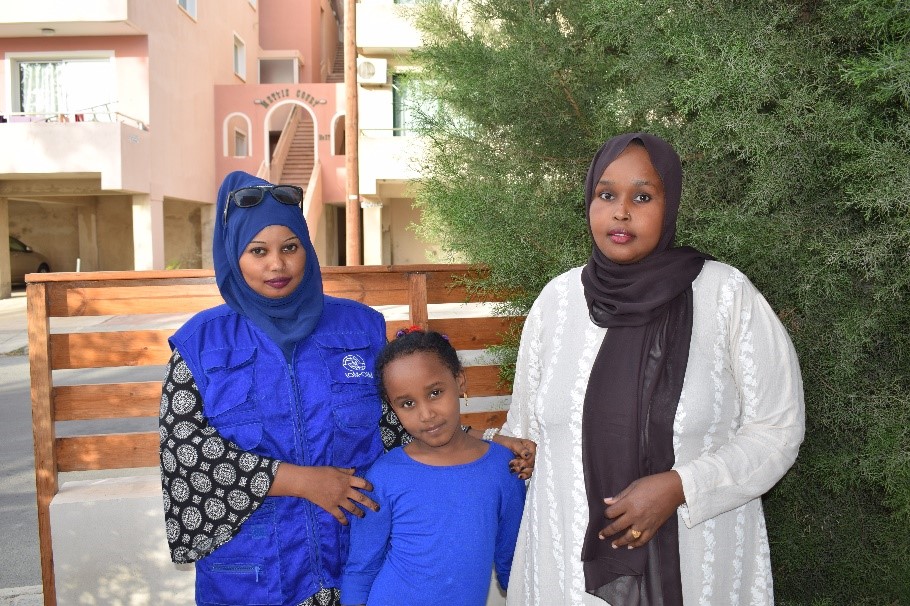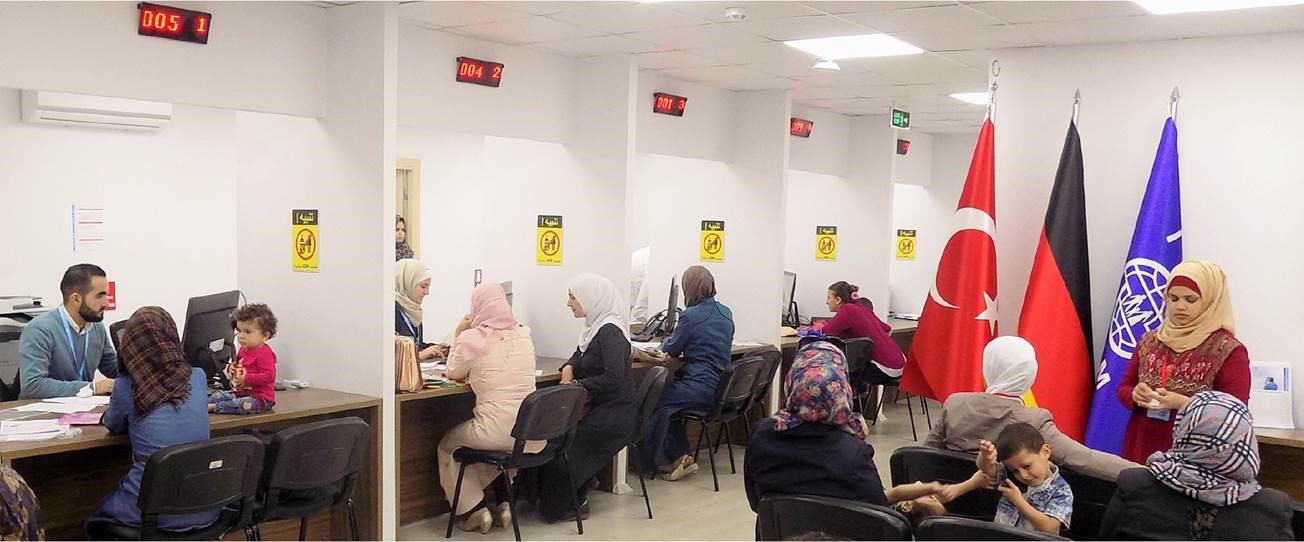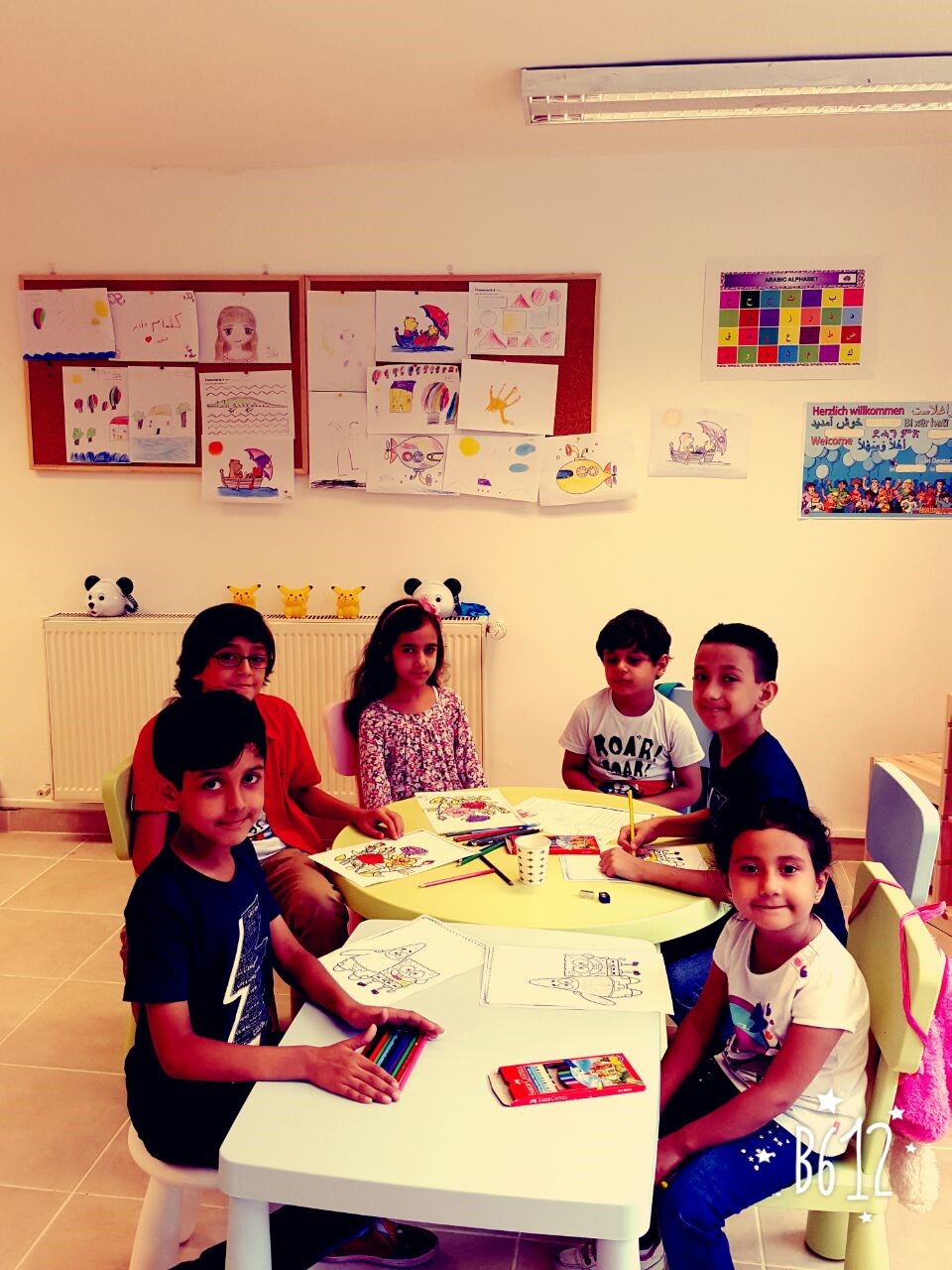Family Assistance Programme
Description
Over the past years, Germany witnessed a strong increase in the number of people seeking protection, leading to a challenging situation when the number of family reunification applications vastly exceeded processing capacities of the respective German authorities. As a response, the German Federal Foreign Office, in collaboration with the International Organization for Migration (IOM), initiated the Family Assistance Programme (FAP). During the first phase, IOM established and operated support centres in Turkey, Lebanon, Jordan and Iraq, assisting families with the visa application procedures. Building on this success, the programme was recently expanded to operate support centres across ten countries.
The central aim of the FAP is to support families in vulnerable situations to reunite with their relatives in Germany by assisting them with the family reunification, visa application process. The programme facilitates accessibility to an alternative regular migration pathway, dissuading families from seeking unsafe, irregular migration channels and protecting them from misinformation and exploitation by visa brokers and smuggling networks. It thereby directly contributes towards the achievement of SDG Target 10.7 “Facilitate orderly, safe, regular and responsible migration and mobility of people, including through the implementation of planned and well-managed migration policies”. With facilities in ten countries, the FAP offers both in-person and remote assistance to a high volume of vulnerable migrant beneficiaries by providing them with timely, trusted and accurate information and visa-related support services in their native language. Among others, these services include assistance with visa application form-filling and application completeness checks, facilitation of appointment scheduling, biometrics enrolment, conducting of health assessments, facilitation of DNA testing, escorting of unaccompanied minors and cases with serious medical needs, delivery of integration classes and distribution of integration handbooks. The programme therefore also makes a contribution to other SDGs, such as Goal 3 on health and well-being. As beneficiaries are often in a situation of heightened vulnerability, the programme is built on a protection-centred approach. Staff are carefully selected, security cleared and trained to provide empathetic and culturally sensitive services and to identify and prioritize the most vulnerable, including unaccompanied minors and persons with medical conditions. The centres are accessible for people with disabilities, include child-friendly spaces, prayer rooms and private spaces for mothers with infants. As over 83% of principal applicants are women, a gender sensitive approach is at the core of the support offered. A key component of the FAP is to provide families with accurate, timely and topical information on the German family reunification visa process and related matters, including relevant news from Germany, with a focus on integration related services being offered before and after arrival. Information is disseminated in the native language of migrants, via multiple channels including outreach by phone, helplines, email, website and social media platforms. The IOM service centres share a dedicated Facebook page (https://www.facebook.com/IOM.Family.Assistance.Programme/) and Twitter account (@IOM_FAP) to broaden outreach and access to information. IOM also monitors relevant social media to dispel rumours and misperceptions about the Germany’s family reunification process.
Set-up (Initiation & Planning) focused on identification of suitable locations, hiring of staff and coordination with relevant embassies to identify Standard Operating Procedures for each location and subsequent provision of training to staff. Execution involved a broad range of activities, including but not limited to: In-person counselling & document completeness checks; Application collection and biometrics enrolment; Flexible and robust administrative support to German Consular teams; Return of visa decisions to applicants; DNA facilitation to verify relationships; Appointment scheduling, passport and file logistics; Integration classes and guide distribution; Prioritization of unaccompanied minors (UAMs), medical cases, those nearing 18 years of age for German Consulate consideration; Vulnerability screening and referrals; Medical Assessment Prioritisation and Processing; Case management for the most vulnerable cases (UAMs, urgent medical cases)
Monitoring & Evaluation included regular reporting and drawing on best practices and lessons learnt to enhance and expand the programme. It was used as the basis to open new locations and close locations that were no longer needed. IOM provides robust consolidated monthly reporting to the Foreign Office on all FAP operations with country-specific reporting to the relevant German Embassies and Consulates, as required. Furthermore, close IOM project monitoring is facilitated through robust staffing structures, with experienced, dedicated National Project Officers and Team Leaders. The FAP programme also leverages the experience and capacity of the IOM Mission staff and resources in the field offices to further ensure close project monitoring. In the past two years, monthly data collection proved especially useful to promptly learn about underlying trends that could impact the successful delivery of the project’s key outputs. On numerous occasions, FAP was able to adjust quickly to new information enabling the project to deliver timely outputs and as agreed.
Other specific monitoring mechanisms include:Software for Monitoring: In 2016, the project successfully implemented a Microsoft Dynamics CRM case management system and a CISCO call centre solution to monitor all project activities. This enabled the project management team to provide detailed reports on project indicators as needed and to analyse ongoing trends possibly requiring a revision of project activities. Moreover, the data collected and analysed using CRM enabled the project management team to quickly develop and implement new initiatives requested by the donor. The Foreign Office has also been given access to the system for added transparency and case reviews.
For evaluation purposes, periodic on-site visits are being carried out by the relevant German Embassies and Consulates to evaluate project implementation and address any challenges and/or shortcomings. Additionally, IOM welcomes unannounced visits for added transparency.
As a result of the Family Assistance Programme, Germany managed to respond successfully to a growing migration challenge by adjusting and implementing an existing regular migration pathway to allow for a safe and orderly movement of the beneficiaries concerned. The programme serves as a prime example of how a regular migration pathway (family reunification visas) can be implemented with a vulnerability focus, assisting migrants in highly vulnerable situations to reunite with their family and migrate in a safe and regular manner.
SDGS & Targets
Deliverables & Timeline
Resources mobilized
Partnership Progress
| Name | Description |
|---|
Feedback
Action Network


Timeline
Entity
Region
- Europe
Photos



Website/More information
Countries

Contact Information
Patrick Corcoran, Senior Specialist, Immigration and Visa Support
